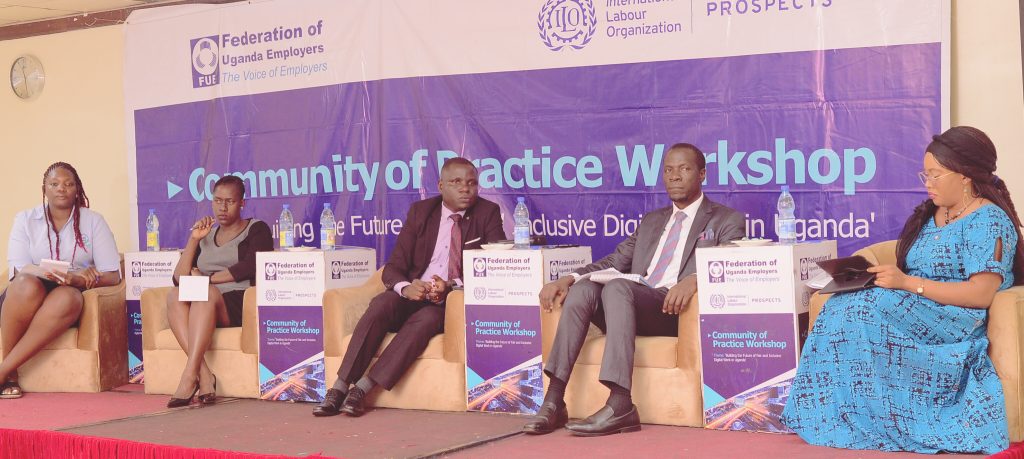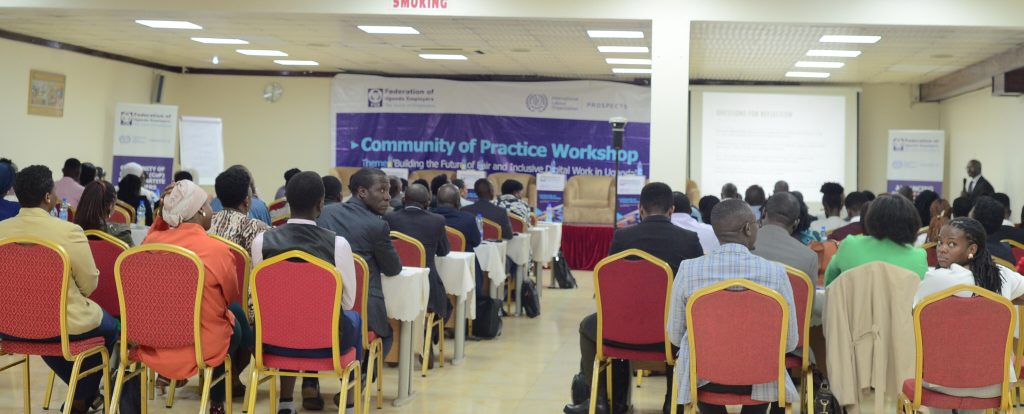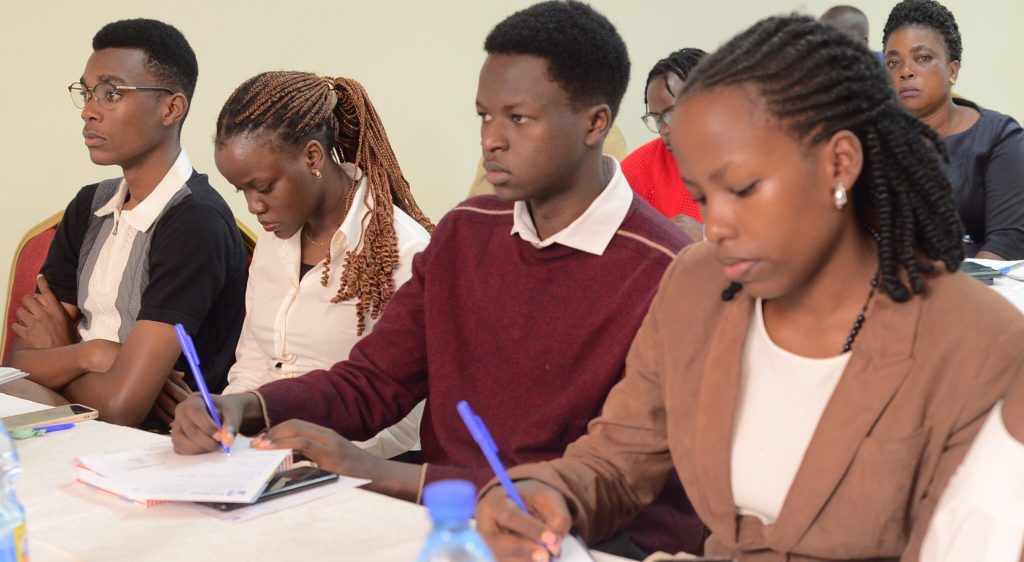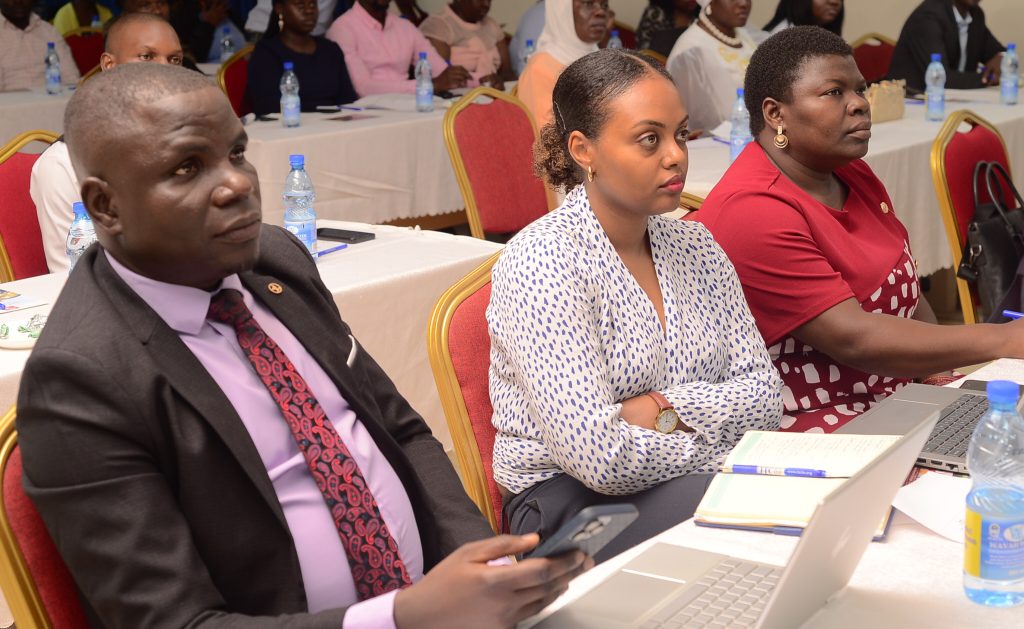
The Federation of Uganda Employers (FUE) and stakeholders have convened to discuss on how to take advantage of Artificial Intelligence (AI) as they emphasize its importance in implementation of work, identifying it as a new trend.
Tuesday in Kampala, the discussion, hints as a follow up on the recently concluded dispatched Community of Practice Platform a few weeks ago that aims to improve the digital economy in Uganda through identifying challenges and solutions.
While several surveys are being done in the trends to do with world of work, they predict the future of one fundamental factor, the AI and how it shall increase productivity. The population of Uganda is very young and how can it be used in the IT sector and create more decent jobs, Mr. Douglas Opio the Executive Director, FUE highlighted giving opening remarks.

Opio, also drew his attention to the issue of quality education in line with skilling Ugandans especially through TIVET, how to foster access to programs that enhance the digital knowledge, how to keep pace with the ever-evolving tools, the digital infrastructure and accessibility which is costly among other concerns like the fair wages, social dialogue and multipartyism.
The Head of Internal Employment within the Department of Employment Services for Ministry of Gender Labor and Social Development, Mr. Isiah Masiga. Mentioned that the Federation of Uganda Employers is taking lead in the community of practice by bringing stakeholders together to engage them on issues of promoting decent work for all and this is basically a platform for social dialogue and promoting tripartism within the world of work. This is what government and different stakeholders have been doing in promoting decent work for all.

He, however, explained some ways to collaborate with stakeholders to align digital work policies with labour market changes, such as engaging with the FUE and other key stakeholders to have an open dialogue and social discussion on promoting digital work for all. Because this platform can help gather input and align on the issues.
Masiga, noted also about reviewing current government policies and regulations around the digital workplace and employment services. Work with stakeholders to identify gaps or areas that need updating to protect workers as the labour market shifts. Advocating for improved internet accessibility, affordability and high-speed connectivity. Work with telecom companies to develop suitable internet packages that meet the needs of digital workers.
Aligning policies and regulations to cover both physical and digital workplaces, ensuring workers are protected regardless of work environment. Reviewing and update employment-related conventions and policies, such as ILO Convention 88 and 181, to ensure they address the changing nature of digital work. The key is to bring together government, employers, workers and other stakeholders to collaboratively develop policies that keep pace with the evolving digital labour market, he indicated.
“We have adjusted our operating model, being driven by social trends and digitization but also researched and got information on the concept of the platform work, its evolution and the impact on the labour market,” Esther Namatovu, Head of the ICT department with the National Organization of Trade Unions (NOTU) said.
NOTU, still went ahead to develop competencies of trade union representatives involving social dialogues in sectors with high prevalence of platform workers. However, she added that they have raised awareness on the importance of trade unions action for decent working permission for platform workers still.
Namatovu, described key challenges faced by workers on online platforms like the occupational safety and health challenges, such as long working hours due to the need to earn money on multiple platforms. The lack of social protection policies and programs on online platforms, leaving workers without insurance or other benefits. Risks of being exposed to dangerous situations, such as workers in the Boda Boda industry being led to unsafe areas and the difficulty in organizing and forming associations to advocate for better working conditions.

When it comes to skilling SafeBoda drivers to be able to carry out their online work, Ms. Victoria Nakabugo Tega the VP of People and Customer Success SafeBoda Technologies, highlighted that at the SafeBoda Academy, drivers are taken through digital Training at onboarding so that they are better equipped with smartphone knowledge and how to use the SafeBoda App.
She said, they are empowered to start taking trips online, how to access their trip history and earnings on the App. Internally staff are also trained to use emerging technologies to boost individual and team productivity. Additionally, drivers and staff share their ideas when App features are being improved or developed
